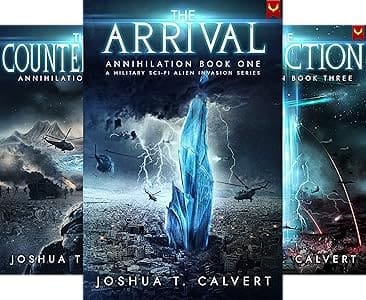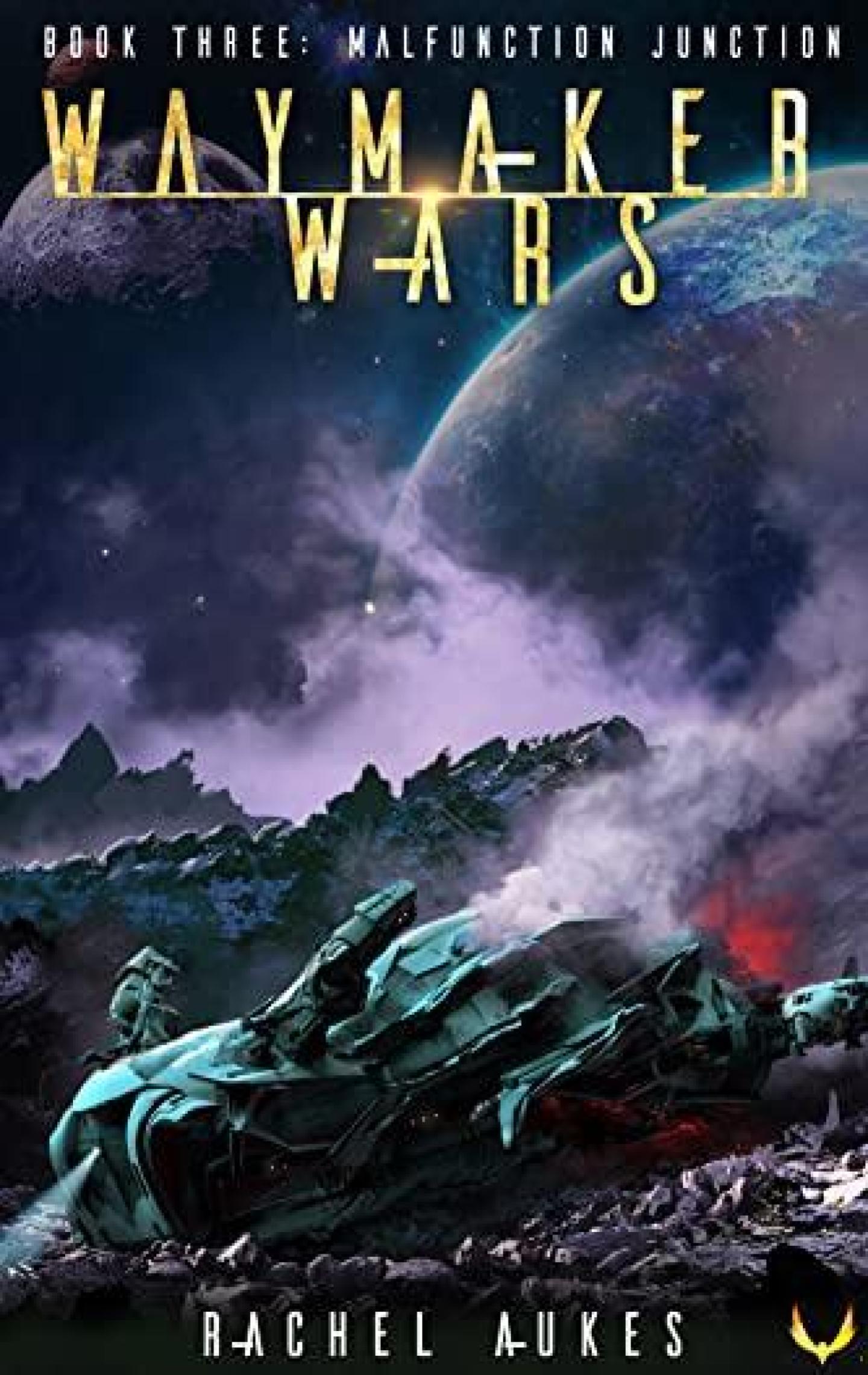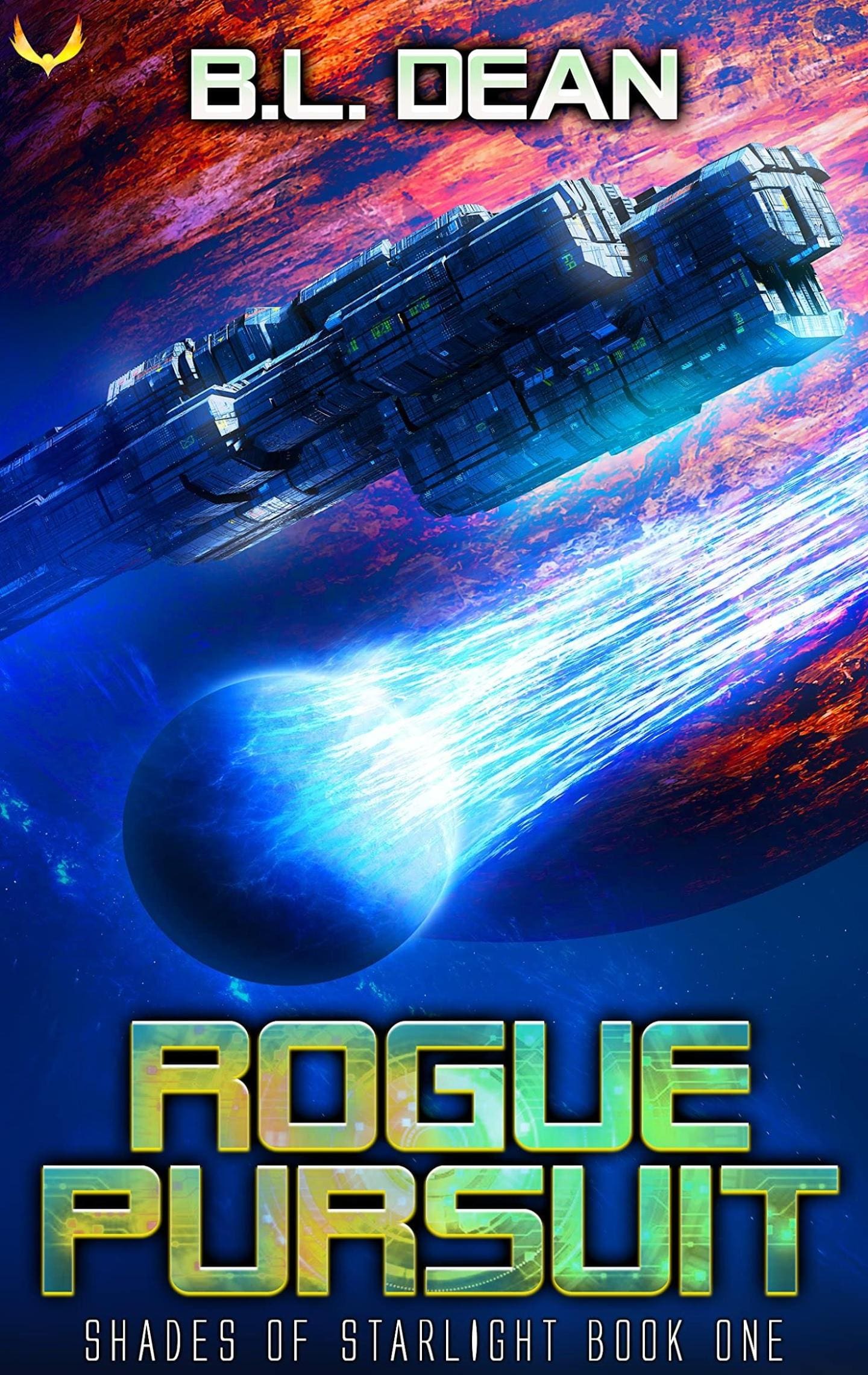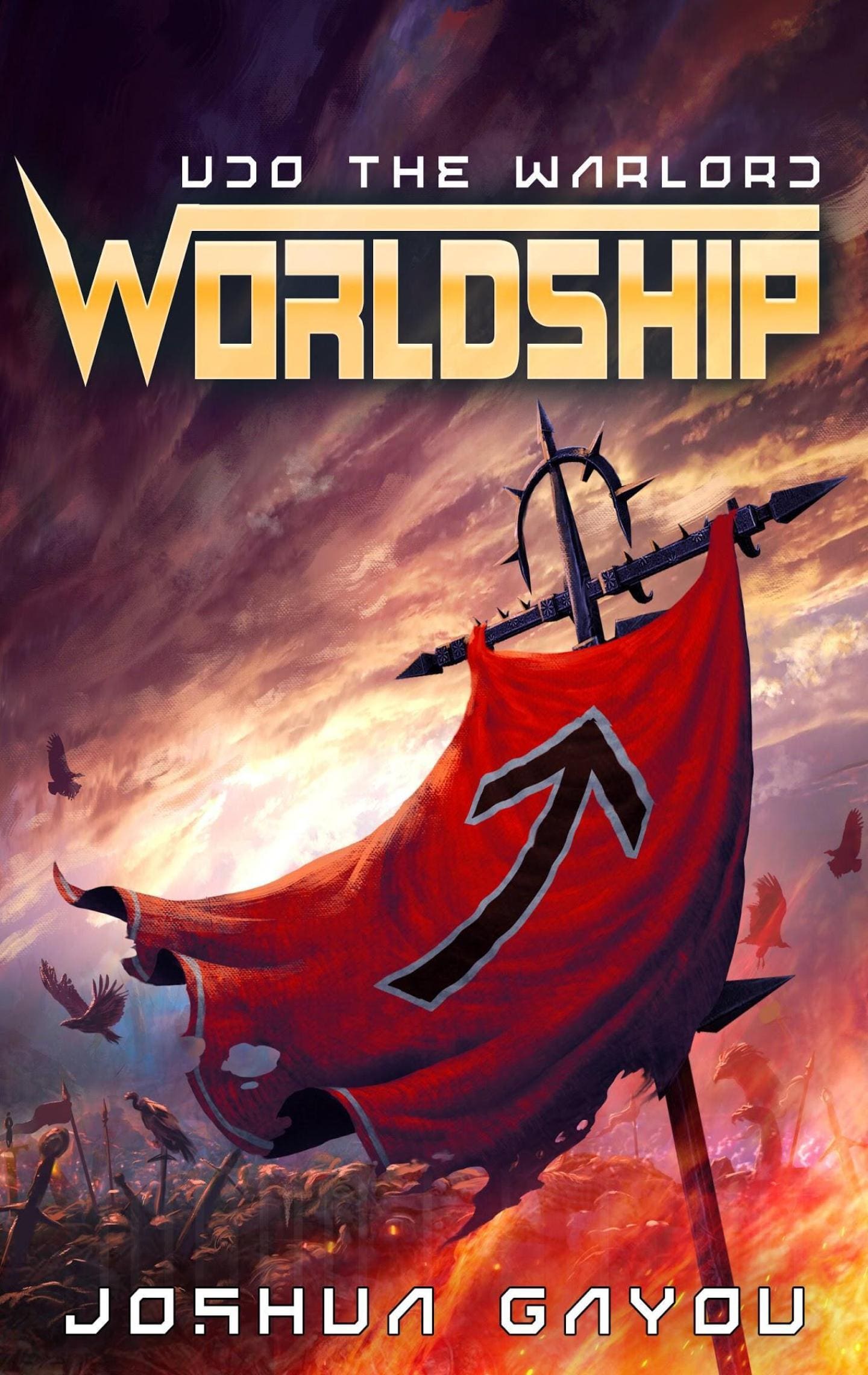Joshua T. Calvert is an award-winning science fiction author whose books have collectively sold over one million copies worldwide.
In this interview, we’ll be diving into one of his most explosive and haunting trilogies: Annihilation. Set in a near-future Earth ravaged by a mysterious alien incursion, the series explores survival, power, and the terrifying consequences of first contact.

Let’s start at the beginning. In Arrival, humanity is caught in the crossfire of a war it doesn’t understand. What inspired this premise of alien conflict landing, quite literally, in our backyard?
I was dwelling on the image of two knights fighting in the woods, at one point stepping on an anthill—killing many ants and destroying their habitat without giving it a second thought. Then I wondered: what if that happened to us? What if we were the ants, and some technologically far more advanced species waged a war near Earth, not caring about us at all and thoughtlessly ravaging our planet?
From Athens to orbit, the scale of destruction in Annihilation is intense, yet the story stays rooted in the personal. What drew you to ground such sweeping conflict in individual human stories?
For me, it’s always about human stories. The grandeur of cinematic moments only works if we see them through the eyes of a relatable, empathetic human being. An epic scene feels bland if it doesn’t carry emotional weight—and by that I mean emotional investment from the reader, specifically. In the end, it’s all about the people in the story. Always.
The ruins of Athens become a kind of hellscape, and the only salvation lies inside the wreckage of an alien ship. What did you want to explore about desperation, survival, and human resilience in this post-apocalyptic setting?
Resilience is one of the most fascinating things to me. Jesus might be the embodiment of resilience, but there are thousands—millions—of people who show resilience every day in the midst of pain and unbearable circumstances. They teach us valuable lessons by pushing through hardship without becoming cynical or bitter. I like to explore resilience in different situations, and a crashed spaceship in the center of Athens seemed like a pretty wild one—something most people would run away from. What does it take to surpass oneself? That’s far more interesting to me than just shooting at something.
By Counterstrike, the conflict stretches across the solar system and the laws of physics begin to break down. How did you balance scientific realism with the surreal and unknowable nature of these alien forces?
For this story, I just let go of my roots in hard science fiction. 🙂 I knew that if I wanted to bring it to life, I had to approach it differently than usual. If the alien tech had to be so far beyond anything we have today, I couldn’t start by trying to “explain” the physics behind it. It needed to feel magical to the protagonists—and, through them, to the readers. So I let go of all the boundaries I usually set for myself.
One of the most compelling threads through the series is that humanity is not the protagonist of this war—it’s barely even a participant. How did it feel to write a story where we’re not the center of the universe, just caught in the blast radius?
It actually felt very realistic to me. Most military sci-fi gets one thing wrong: even a slight technological advantage on the enemy’s side would realistically mean annihilation. Just think about nukes today—high tech that only a few countries know how to build. Even a nation like North Korea could potentially wipe out a much larger military power like South Korea or Germany, simply because it has nuclear weapons. Anything advanced enough to visit Earth would be so far beyond what we know or can do that it’s unrealistic to think we’d stand a chance. Except—and this is what many authors (myself included) do—aliens need our help for some reason and give us “the good stuff.” What I wanted to show was how it would feel to be completely without a chance.
Leadership on Earth is out of its depth, and the real decisions are being made far beyond the planet. What did you want to explore about powerlessness, misinformation, and the limits of human control?
I’ve always been fascinated by our tendency to believe that “the government” or “those in power” know everything and can do almost anything. I guess we need to think that way—even people who distrust the government often still imagine it as all-powerful—because otherwise we wouldn’t have a coherent society. But even a president is just a normal human being who can’t turn water into wine. I wanted to explore that idea through the most extreme scenario possible.
Nikos and Jacek, caught in a battle that defies human understanding, still try to make choices that matter. What role do individual decisions play when the backdrop is extinction on a galactic scale?
History reminds us that even individuals who seemed powerless at the time have shaped the fate of millions. A young man named Gavrilo Princip pulled a trigger in Sarajevo and set off World War I. Decades later, Stanislav Petrov sat in a Soviet command center and, by trusting his own judgment against the machines, may have prevented World War III. And Rosa Parks, by simply refusing to give up her seat, ignited a movement that transformed a nation. On a galactic scale the principle is the same: one person’s choice, however small it seems in the moment, can ripple outward and alter the course of history.
Last one—this isn’t your first alien war. Across your work, you’ve returned to questions of conflict, first contact, and what it means to be human. What makes Annihilation stand apart for you? Is there a moment or message from this series that’s stayed with you?
I named the series Annihilation—and I followed through. Humanity gets annihilated. I didn’t want to cheat the reader with a fake-out ending where, suddenly, there’s no annihilation after all. By choosing that title, I made a promise, and I wanted to honor it. Normally, I try to leave a story on a more hopeful note, but this time there were no restraints. Still, I wanted to show that even in the face of certain defeat, it matters to fight, to keep going until there’s nothing left. To me, that’s the essence of true resilience

More stressful: writing about global extinction… or a blank page?
Writing about global extinction!
Which character surprised you the most as the series evolved?
Well, none of them—because I had already plotted their path through the story. 🙂
Most intense scene to write in the Annihilation series?
The destruction of one of my favorite places in Austria in the final scene was tough to write. Innsbruck is such a beautiful city, and tearing it apart on the page felt surprisingly intense.
Which book in the series changed the most from your original plan?
The last one—because it carried a hint of a happy ending, which wasn’t planned at all!
Get Calvert’s amazing series, Annihilation, available on Amazon
It’s our planet. But it’s their war…
On New Year’s eve 2022, unknown flying objects appear over Europe and ignite an inferno of violence among themselves. Debris from one of the spacecraft falls on Athens, turning the city center into a smoking crater.
The destroyed remnant of the former metropolis is declared a restricted zone by NATO forces and sealed off. Amidst the few survivors struggling for food, medicine, and clean water, Nikos takes care of his girlfriend Maria, only to soon find out that to avert a creeping death, there is only one way out of the hell of Athens—the wreckage of the alien ship.
At the same time, a special forces team is sent on an impossible mission, as NATO’s European Command has evidence that another spaceship has landed in the jungles of Africa and its Alien crew appears to still be alive…
Don’t miss Bestseller Joshua T. Calvert’s next Science Fiction epic. A story of survival, invasion, and war that’s perfect for fans of Jay Allan, Joshua Dalzelle, and S.M. Anderson.






Leave a Reply